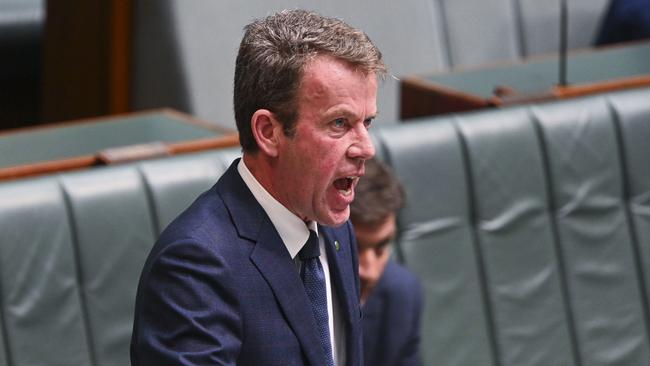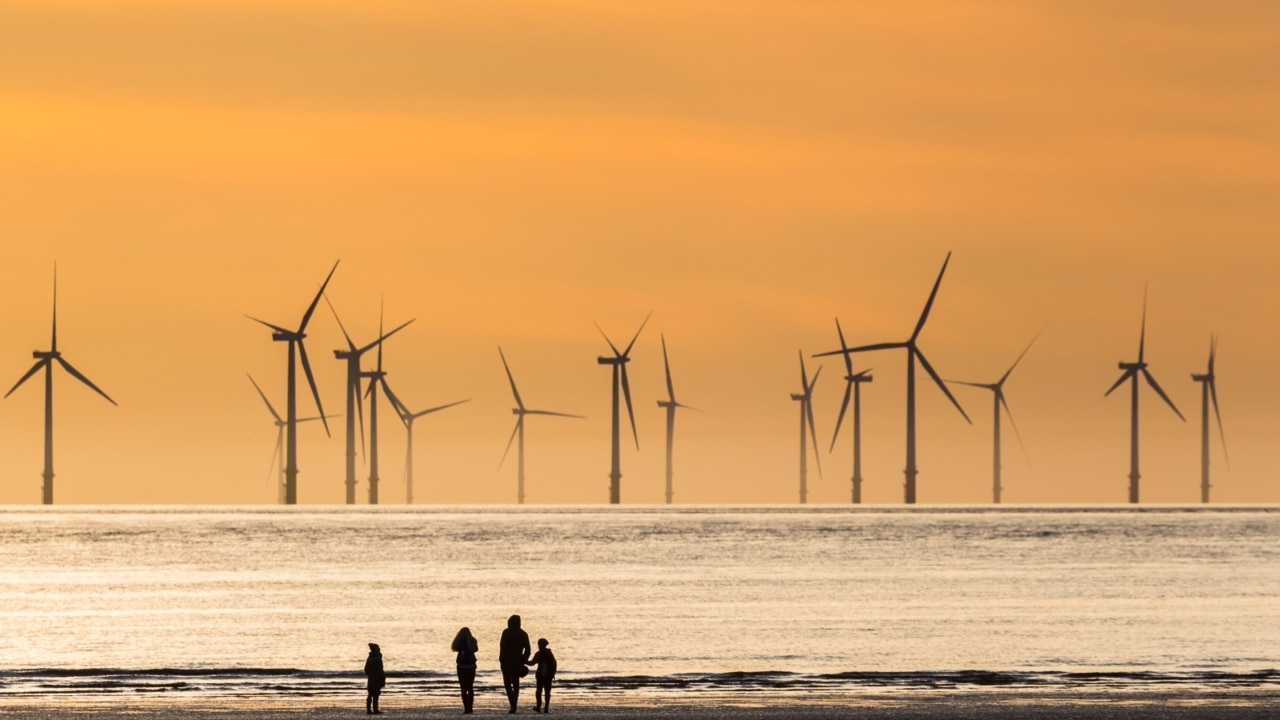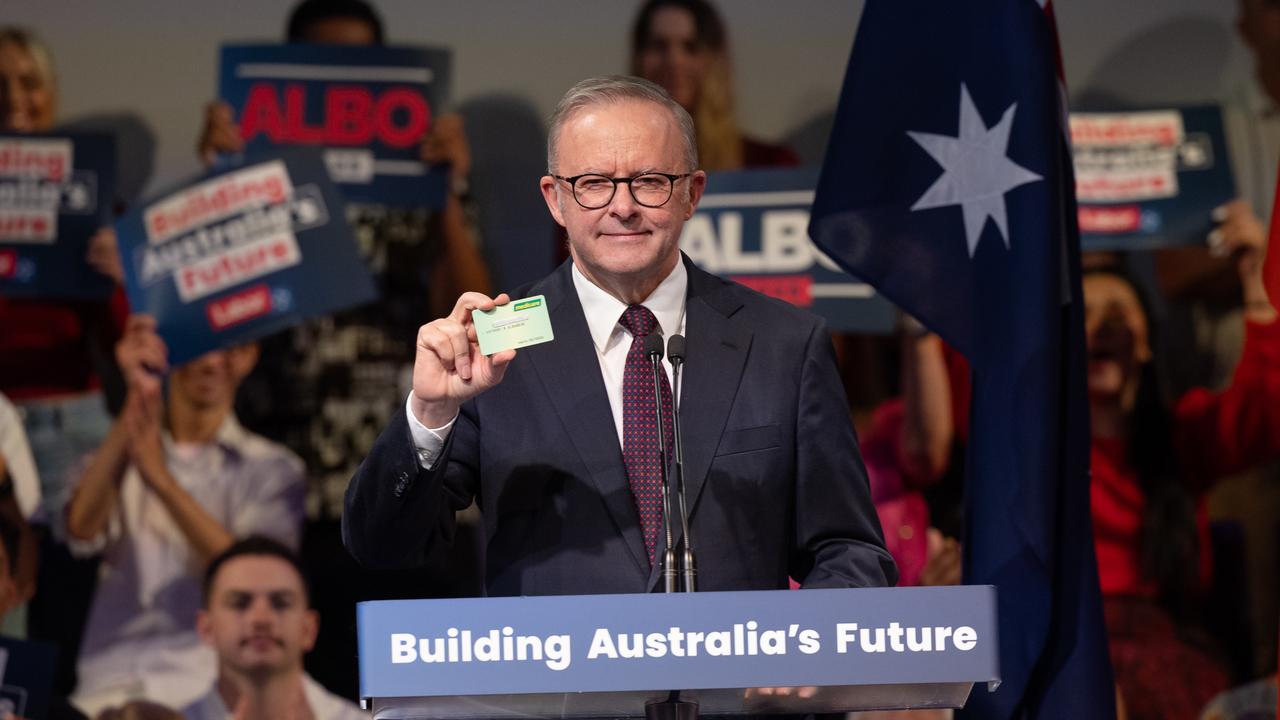Second Indigenous group slams Energy Minister Chris Bowen over wind zone
The Eastern Maar Aboriginal Corporation has expressed concern about damage to marine ecosystems, and warned that the federal government could be setting energy companies ‘up for failure’.

A second southwest Victorian Indigenous group is calling for Energy Minister Chris Bowen to review his declaration of the Southern Ocean wind zone, arguing offshore renewable energy development must be carried out in a manner that avoids damage to marine ecosystems.
The Eastern Maar Aboriginal Corporation’s statement, issued on Friday, also warns that the federal government could be setting renewable energy companies “up for failure” and discouraging investment, given they will need to consult with the Indigenous group to obtain environmental approvals.
It comes after the Gunditj Mirring traditional owners Aboriginal Corporation on Tuesday condemned Mr Bowen for a “complete lack of appropriate and meaningful consultation”, accusing him of undermining their “sovereignty as land rights holders”.
The Eastern Maar group and the Gunditjmara people — represented by the Gunditj Mirring corporation — have shared native title claims over the area Mr Bowen and Victorian Energy Minister Lily D’Ambrosio last month declared as the Southern Ocean wind zone, with Eastern Maar formally recognised as the Registered Aboriginal Party under state law, and the Registered Native Title Body Corporate, under federal law, for the area.
The zone is only 20 per cent of the size of that originally proposed by the federal government after it was forced to consider a range of environmental concerns, including the ramifications for whale habitat.

In their statement EMAC said that while they support the “global and national imperative of decarbonising traditional energy sources” this “must not come at the expense of the marine life that we are inextricably linked to.”
“Particularly, we have concerns about the impacts on the migratory paths, feeding grounds, and nursery areas of the highly endangered and culturally significant Koontapool (whale) species that utilise the oceans and coastlines of southwest Victoria, as well as the globally significant ecosystems that support Koontapool,” the organisation said.
“The declared offshore wind area was made on the back of preliminary assessments rather than comprehensive environmental studies, which is concerning to us.”
EMAC warned that the declaration of the wind zone prior to the completion of environmental studies would shift the onus for completing the studies onto energy companies, potentially setting offshore wind development “up for failure”.
“Although EMAC is mandatorily involved in the preparation of environmental plans, which includes independently assessing the plans, we believe this is flawed process that potentially sets industry proponents up for failure (if environmental approvals are not obtained) and places a significant and unnecessary burden on us to undertake extensive consultation with several individual industry proponents who may never receive a license to proceed to development,” the organisation said.

“We advocate for a recalibration of the offshore wind development strategy to ensure environmental integrity and cultural respect is front and centre and is prioritised alongside decarbonisation goals.”
A spokeswoman for Mr Bowen said the minister had considered “all community feedback and stakeholder submissions, including from Traditional Owners, before determining a final area in the Southern Ocean region,” and met with EMAC in December 2023.
“The final declared area includes a 20km exclusion zone from Deen Maar Island, taking into account the cultural heritage significance of the area,” the spokeswoman said.
“The feasibility licence application process also requires further engagement with TO groups.
“It’s important that we establish this job creating industry while also balancing the needs of community.”

Opposition frontbencher and MP for the southwest Victorian seat of Wannon, Dan Tehan, said the Albanese government had now been “called out” by both local traditional owner organisations “for the failings in their approach” to declaring the wind zone.
“Chris Bowen’s ideological pursuit of Nirvana is leaving local communities dismayed and Australians facing higher energy bills. It’s a mess,” Mr Tehan said.
Concerns over the Southern Ocean wind zone come as Victoria has struck major difficulties in striving to meet its goals for offshore wind generation, which are integral to the federal government’s net zero targets.

The state government’s plans to build an offshore wind assembly terminal at the Port of Hastings, southeast of Melbourne, are indefinitely on hold, after federal Environment Minister Tanya Plibersek vetoed it in December, citing “clearly unacceptable” risks to flora and fauna in local wetlands of international significance.
The state has set offshore wind targets of 2GW by 2032, 4GW by 2035 and 9GW by 2040, with the aim of generating first power by 2028.
Energy industry experts from across the ideological spectrum have warned that the targets are likely to take longer to meet and be significantly more expensive than the state government has predicted, highlighting the challenge of attracting investment at competitive prices at a time of high global demand.








To join the conversation, please log in. Don't have an account? Register
Join the conversation, you are commenting as Logout